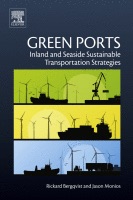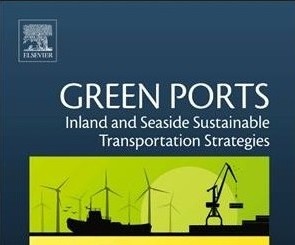Ports today play a greater role than simply handling cargo on the quayside. The sources of their competition and the extent of their influence stretch across the sea and also deep into the hinterland. Their management and operational strategies are entwined with stakeholders on several scales and in many spheres, from local to global and from business to government. The port’s role in the transport chain has the potential to shape the social and environmental performance of transportation systems extending across the globe. While many ports choose not to act beyond complying with existing environmental regulations in their city, region or country, in many cases they have exercised their potential for addressing both social and environmental externalities.
 PortEconomics member Jason Monios and Rickard Bergqvist (Gothenburg University) co-edited the newly published book titled Green Ports: Inland and Seaside Sustainable Transportation Strategies. The book is the first to exclusively focus on this important topic and comprehensively and systematically examines the key issues and best practice for understanding green ports and quantifying aspects of their environmental performance.
PortEconomics member Jason Monios and Rickard Bergqvist (Gothenburg University) co-edited the newly published book titled Green Ports: Inland and Seaside Sustainable Transportation Strategies. The book is the first to exclusively focus on this important topic and comprehensively and systematically examines the key issues and best practice for understanding green ports and quantifying aspects of their environmental performance.
Key Features
- Includes practical application tools and techniques for increasing sustainability throughout the entire transportation chain
- Provides an overall picture of green ports through a collection of expert specialists
- Examines how ports and surrounding areas are addressing the environmental impacts related to growth in the cruise business
- Presents a theoretical framework to identify best practices for planning and policymaking for the impacts posed by climate change
Follow the link to find more info and order your copy, while download via PortEconomics Jason’s and Rickard’s introductory chapter.











